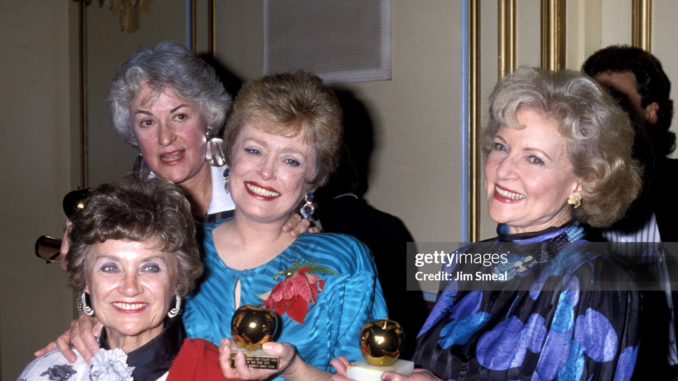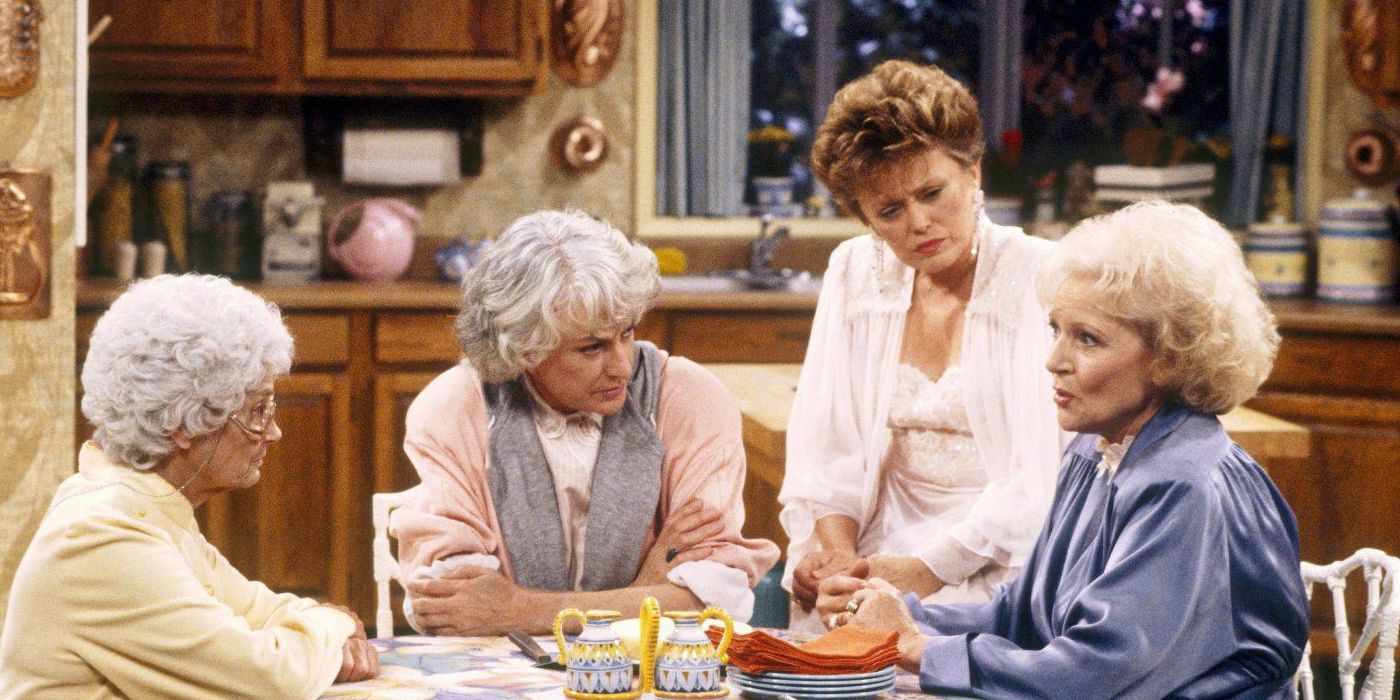
Hulu went on to reverse the decision.
When people think of The Golden Girls, they think of a classic show that has stood the test of time. A show that featured veteran actors doling out wit and wisdom over cheesecake. A show that they could watch while home sick from school or work, or a show they could watch with their mom on holiday. All considered, the series has aged well; but like any bygone sitcom, there are episodes that have aged like milk instead of a fine wine. For The Golden Girls, that episode was supposed to be a groundbreaking one — one where an interracial couple would be featured, no less — but in the end, it turned out to be banned briefly from Hulu, which shocked and appalled fans.
Hulu Pulled an Episode of ‘The Golden Girls’ Due to Alleged Blackface
A third season episode of the show titled “Mixed Blessings” that aired on March 19, 1988, was pulled from Hulu over scenes that could be interpreted as offensive. In the episode, Dorothy’s (Bea Arthur) 23-year-old son, Michael (Scott Jacoby), is bringing home his fiancé, Lorraine (Rosalind Cash), a 44-year-old Black woman. Michael tells Dorothy that his fiancé is Black, but does not mention her age. Lorraine tells her mother (Virginia Capers) that Michael is younger than her, but does not tell her that he is White. Lorraine’s age is more of a concern for Dorothy, but Michael’s race is more of an issue for Lorraine’s mother, Greta. They hope that once everyone meets each other, and they learn that Lorraine is pregnant, that they will accept the situation for the sake of the grandchild.
In one scene, before the race bombshell is dropped on her family, Lorraine’s mother believes Rose (Betty White) and Blanche (Rue McClanahan) are actually Michael’s parents. Lorraine laughs and tells her to put her glasses on, and for a brief moment she believes the ladies are wearing blackface and is shocked. They aren’t. They are having a beauty day and are just wearing mud masks. The matter is promptly cleared up and not thought of again. Rose even makes a joke about how awkward White people are on Soul Train.
Blackface is not funny — it is extremely offensive, and the roots of it are still misunderstood even centuries later. White performers in the nineteenth century painted their faces with shoe polish, wore torn clothing, spoke broken English, and created bastardized characters to enforce stereotypes of Black people, oppressing them further. Simply put, blackface was derived as a way to mock enslaved people. It is understandable that television networks would not want to be associated with such debauchery. Yet, some fans were upset by this decision since it was not a joke taken too far, and it was not, in fact, blackface. They felt as though The Golden Girls shouldn’t be penalized and be lumped into that camp, since the joke was not offensive and, by and large, was not taken as such — especially since the episode is taking a progressive stance on interracial marriage. Journalist Imani Gandy tweeted about the situation, “I like how they think Black people don’t know our Golden Girls. Dorothy, Rose, Sophia and Blanche are the least problematic white women in all of television, which is fairly impressive considering that show was on air in the [sic] mid-80s.”

Conversations About Race Prove Difficult Decades Later
The other scene is a bit more difficult, however. Although not cited directly as the cause for the ban, it certainly did not assuage the matter. Later that day, Dorothy, Sophia (Estelle Getty), Blanche, Rose, and Greta and her sisters, Trudy (Lynn Hamilton) and Libby (MontroseHagins) meet in the kitchen to discuss their dilemma over cheesecake and coffee. But before they can plan how to stop the wedding, Sophia asks Greta if it is true what they say about Black men’s sexual prowess. Blanche answers a quick yes, then backpedals, saying she wants to know as well. Dorothy scolds them by pointing out that it is a stereotype, but Trudy says, “call it whatever you want, I’m just grateful it’s true.”
In 1988, this discussion on The Golden Girls was quite provocative but thought-provoking. To modern audiences, this fetishization is not okay, even though the show meant it in jest at the time. We now know that any type of stereotype is harmful, even the “good” ones where the marginalized are praised for a skill. It can still divide social or racial groups, causing further harm between them. Although the show may have some flaws where race is concerned, the fact that they raised them in the mid-to-late ’80s is a testament to why the show endures, even today.
Ultimately, Michael and Lorraine elope, and Greta and Dorothy find common ground: they are both mothers and grandmothers-to-be. They agree that they will pretend that they are happy about the marriage because that is what mothers do. It does seem to be the most realistic stance while placating audiences. At one point in the episode, Rose asks Dorothy if she can ask a “dumb question.” After Dorothy quips, “better than anyone I know,” Rose asks what color Black people’s dandruff is. Dorothy says they don’t get it because God says they have been through enough already. This episode isn’t supposed to be racially insensitive and is trying to bring awkward discussions to the table, respectfully. This exchange proves that the tone of the episode is sympathetic, but perhaps that isn’t enough to save it.
It is honorable that television shows and networks want to fight racism in all its forms. It is noble that they want to erase offensive tropes and/or stereotypes from its platforms, but is that really what happened here? Is this a case of overcorrection? The episode was pulled from Hulu in 2020, but has since returned. Hulu has not made any further comments on their decision. You can also still see the episode in its entirety on DVD sets.
The Golden Girls is available to stream on Hulu in the U.S.
